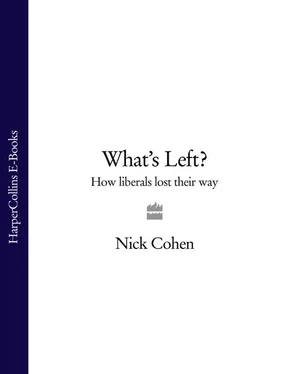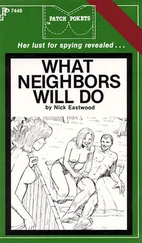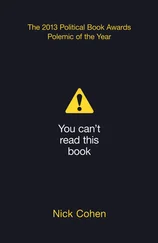Every now and again, someone asks why the double standard persists to this day. The philosophical answer is that communism did not feel as bad as fascism because in theory, if not in practice, communism was an ideology which offered universal emancipation, while only a German could benefit from Hitler’s Nazism and only an Italian could prosper under Mussolini’s fascism. I’m more impressed by the matter-of-fact consideration that fascist forces took over or menaced Western countries in the Thirties and Forties, and although there was a communist menace in the Cold War, the Cold War never turned hot and Western Europe and North America never experienced the totalitarianism of the Left.
There were many moments in the Thirties when fascists and communists cooperated – the German communists concentrated on attacking the Weimar Republic’s democrats and gave Hitler a free run, and Stalin’s Soviet Union astonished the world by signing a pact with Nazi Germany in 1939. But after Hitler broke the terms of the alliance in the most spectacular fashion by invading the Soviet Union in 1941, you could rely on nearly all of the Left from nice liberals through to the most compromised Marxists to oppose the tyrannies of the far right. Consistent anti-fascism added enormously to the Left’s prestige in the second half of the twentieth century. A halo of moral superiority hovered over it because if there was a campaign against racism, religious fanaticism or neo-Nazism, the odds were that its leaders would be men and women of the Left.
For all the atrocities and follies committed in its name, the Left possessed this virtue: it would stand firm against fascism. After the Iraq war, I don’t believe that a fair-minded outsider could say it does that any more.
Iraqis have popped up throughout my life – indeed, they were popping up before I was born. My parents had Iraqi communist friends when they were students who came along to their wedding in the late Fifties. God knows where they are now. My mother certainly doesn’t. Saddam’s Baath Party slaughtered the Iraqi left and in all likelihood the Baathists murdered her friends years ago and dumped their bodies in unmarked graves.
I grew up in the peace and quiet of suburban Manchester, started out in newspapers in Birmingham and left for Fleet Street in 1987 to try my luck as a freelance. I wangled myself a desk next to a quiet and handsome young Iranian called Farzad Bazoft in the old Observer newsroom round the corner from St Paul’s Cathedral. In 1989, he went to Iraq. Extraordinary reports were coming out about Saddam Hussein imitating Adolf Hitler by exterminating tens of thousands of Iraqi Kurds with poison gas. Farzad was a freelance like me, and perhaps he was looking for a scoop to make his name and land himself a staff job. More probably, he was just behaving like a proper reporter. He had heard about a sensational story of gigantic explosions at secret rocket bases and wanted to nail it down regardless of the risk or reward. The secret police caught him, and after taking him to a torture chamber, they murdered him, as they had murdered so many before.
It is hard to believe now but Conservative MPs and the Foreign Office apologized for Saddam in those days. Tories excused Farzad’s execution with the straight lie that he was an Iranian spy – and one reptilian Thatcherite declared that he ‘deserved to be hanged’. By contrast, Saddam Hussein appalled the liberal-left. When I went to leftish meetings in the late Eighties, I heard that Iraq encapsulated all the loathsome hypocrisy of the supposedly ‘democratic’ West. Here was a blighted land ruled by a terrible regime that followed the example of the European dictatorships of the Thirties. And what did the supposed champions of democracy and human rights in Western governments do? Support Saddam, that’s what they did. Sold him arms and covered up his crimes. Fiery socialist MPs denounced Baathism, while playwrights and poets stained the pages of the liberal press with their tears for his victims. Many quoted the words of a brave and meticulous Iraqi exile called Kanan Makiya. He became a hero of the Left because he broke through the previously impenetrable secrecy that covered totalitarian Iraq and described in awful detail how an entire population was compelled to inform on their family and friends or face the consequences. All decent people who wanted to convict the West of subscribing to murderous double standards could justifiably use his work as evidence for the prosecution.
The apparently sincere commitment to help Iraqis vanished the moment Saddam invaded Kuwait in August 1990 and became America’s enemy. At the time, I didn’t think about where the Left was going. I could denounce the hypocrisy of a West which made excuses for Saddam one minute and called him a ‘new Hitler’ the next, but I didn’t dwell on the equal and opposite hypocrisy of a Left which called Saddam a ‘new Hitler’ one minute and excused him the next. All liberals and leftists remained good people in my mind. Asking hard questions about any of them risked giving aid and comfort to the conservative enemy and disturbing my own certainties. I would have gone on anti-war demonstrations when the fighting began in 1991, but the sight of Arabs walking around London with badges saying ‘Free Kuwait’ stopped me. When they asked why it was right to allow Saddam to keep Kuwaitis as his subjects, a part of me conceded that they had a point.
I didn’t do much with that thought, but carried on through the Nineties holding the standard left-wing beliefs of the day. By the time New Labour was preparing for power, I was a columnist on the Observer , and my writing was driven by disgust at the near-uniform good press Blair got in his early years. I felt the adulation unmerited and faintly sinister and became one of the few journalists to bang on about the dark side of the shiny happy people who had moved into Downing Street. My pet topic was the treatment of asylum seekers. I was infuriated by the sight of New Labour pretending Britain welcomed the victims of genuine persecution while all the time quietly rigging the system to stop genuine refugees reaching Britain. Once again, I ran into Saddam Hussein. I had to. It was inevitable because among asylum seekers fleeing genuine persecution were countless Iraqis the Baathists had driven to pack their bags and run for their lives.
I got to know members of the Iraqi opposition in London, particularly Iraqi Kurds whose compatriots were the targets of one of the last genocides of the twentieth century. They were democratic socialists whose liberal-mindedness extended to opposing the death penalty, even for Saddam Hussein. Obviously, they didn’t represent the majority of Iraqi opinion. Equally obviously, they shared the same beliefs as the overwhelming majority of the rich world’s liberals and leftists and deserved our support as they struggled against fascism. Not the authoritarianism of a tinpot dictator but real fascism: a messianic one-party state; a Great Leader, whose statue was in every town centre and picture on every news bulletin; armies that swept out in unprovoked wars of foreign aggrandizement; and secret policemen who organized the gassing of ‘impure’ races. The Iraqi leftists were our ‘comrades’, to use a word that was by then so out of fashion it was archaic.
When the second war against Saddam Hussein came in 2003, they told me there was no other way to remove him. Kanan Makiya was on their side. He was saying the same things about the crimes against humanity of the Baath Party he had said twenty years before, but although his arguments had barely changed, the political world around him was unrecognizable. American neo-conservatives were his champions now, while the Left that had once cheered him denounced him as a traitor.
Читать дальше





![Джонатан Димблби - Barbarossa - How Hitler Lost the War [calibre]](/books/385421/dzhonatan-dimblbi-barbarossa-how-hitler-lost-the-w-thumb.webp)






